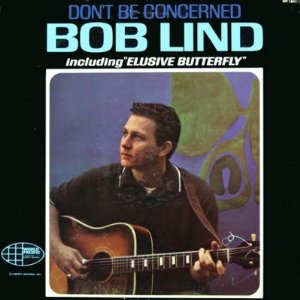Someone’s Hopeless Romance
Theme Songs Page | Previous Theme Song | Next Theme Song
Someone’s Hopeless Romance
Elusive Butterfly, by Bob Lind (1965), encountered 1966
Buy it here | See it here and here | Lyrics here | Sheet music here
There are going to be a few times in these music memories when I can’t tell the story. When it comes to this Theme Song, I have hit the first of them. And fortunately it’s less important an omission than you might think, because the story is really not about me, but rather about some people that I knew and still know to this day. Because this time it’s their story, and their privacy, and the major way I come into it is as an observer, which is to say it’s only barely my story, I’m not going there.
I will say just this: my elusive butterfly was someone I had feelings for and admired, and I was concerned for her at one point.
The song, by contrast, is not about a person, but rather about the elusiveness of love itself. It’s kinda folk and kinda country (covered, for instance, by Glen Campbell and Dolly Parton), and as such pretty close to the margins of the kind of music I liked back then. (I’ve said it before and say it again here: that was one of the glories of the Top 40 format: you could hear almost anything, including things you might not otherwise have been prepared to like.) That kind of squareness is perfect for this song, however. It’s about love without earthiness (the Four Tops’ version doesn’t work very well), love without cheekiness (you can’t imagine the Beatles doing it), a yearning for love without enough history of success or failure to have bred any depth or introspection (impossible to imagine a sadder-but-wiser voice like Tina Turner’s, say, singing it). From the melody and Bob Lind’s presentation, it’s the call of the hopeless romantic.
Even in the fall of 1966, the period I mainly associate it with, Elusive Butterfly would never have spoken to me about myself. Notwithstanding the ongoing history with Kate, I never thought of myself as a hopeless romantic. I was a little tougher than that. As the person with whom I did associate the song also fortunately turned out to be.
Copyright (c) Jack L. B. Gohn, except for commercial images
